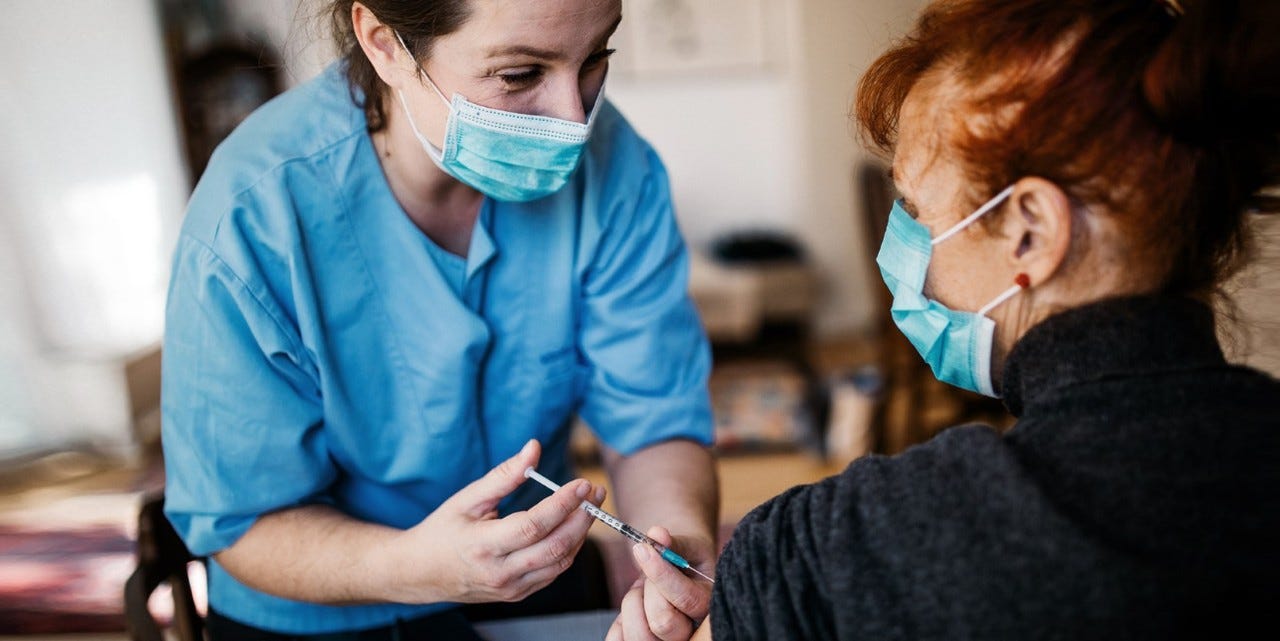Fast-tracking a safe and effective Covid vaccine?
For some people, the Covid vaccine can’t be approved fast enough, while others are worried about the pace of the developments. Lukas Jaggi, media spokesperson for Swissmedic, explains how the Swiss regulatory authority is proceeding when it comes to testing the vaccine.

Mr Jaggi, Swissmedic is currently working flat-out to approve the new Covid-19 vaccines. How does the approval process work?
The pharmaceutical company submits an approval application. There are international guidelines on what must be included with such an application and what form the documents must take. Usually the documents consist of several thousand pages – and in the past they had to be submitted in paper form. Today they are mostly submitted electronically via our digital portal. Our scientific experts review the submitted data and carry out a risk-benefit assessment.
How long does the approval process for a vaccine usually take?
That depends on the procedure. The standard procedure usually takes around 530 days. The application is with Swissmedic for around 300 days, and the rest of the time is spent consulting with the companies, for example when we have queries.
The approval process has been much faster for the Covid vaccine.
In view of the pandemic situation, Swissmedic is allowing the gradual submission of authorization documents. This rolling review allows companies to submit an application before the clinical trials have been fully completed. Swissmedic then checks the data submitted on an ongoing basis. This speeds up the process considerably. More time is saved by the temporary approval that has been issued for the two Covid vaccines released so far. It has the advantage that not all data from longer-term studies need to be available at the time of the decision. An initial approval decision can therefore already be made while the clinical trials are still ongoing.
Last but not least, the intensive international cooperation between the therapeutic products authorities is also helping to speed up the process.
Many people are worried about this fast-track approval? Does it provide sufficient time for a thorough review?
These fears are understandable. However, the safety of the recipients always has top priority. The requirements for vaccines in terms of efficacy, safety and quality are very high and have not been relaxed due to the special current situation. This means that the timeframe is not shortened because we are reviewing more superficially, but because we are reviewing all applications for vaccines or medicines against COVID-19 on a rolling basis and entire teams are concentrating on a single application instead of several in parallel, as is usually the case. Furthermore, through preliminary discussions with the manufacturers, we already had good prior knowledge about the new vaccines before the applications were officially submitted.
Who reviews the submitted documents?
Interdisciplinary teams of scientific experts from Swissmedic – medical doctors, toxicologists, pharmacists, chemists or pharmacologists, as well as specialists in gene therapies.
And what if they have any questions?
The experts contact the applicants directly. For quality assurance purposes, interim results are also discussed with colleagues from the same field outside the case team, so-called peer reviews. In addition, the working groups are in constant contact with committees from other regulatory authorities.
At what point does a vaccine or drug receive approval?
Once the documentation proves that the expected benefits are greater than the potential risks. This is based on data from so-called Phase III studies - approval studies with thousands of participants.
The risk-benefit profile is particularly critical for vaccines, because they are administered to healthy people who should be exposed to the lowest possible risk.
That's why there are no compromises here: These benefits and risks are weighed up totally independently of the epidemiological situation. In addition, the vaccines are also closely monitored after their introduction in order to quickly identify very rare side effects or side effects that are not yet known.
Shouldn’t new vaccines such as those based on mRNA be tested more critically and extensively?
The mRNA platform isn’t completely new. mRNA vaccines have been used for many years as part of human clinical trials, for example, with a therapeutic tumour vaccine.
mRNA vaccines against the novel coronavirus instruct human cells to produce the antigens that trigger an immune response. Here too, the manufacturers of this technology must prove in the registration documents that these vaccines are just as safe, effective and qualitatively sound as conventional vaccines with inactivated or attenuated viruses or virus components.
When will the Covid vaccine also be released for children?
For ethical reasons, children don’t usually take part in initial studies for new drugs and vaccines – and this also applies for the Covid vaccine. As soon as studies with children and adolescents have been carried out and conclusive data are available, the indication can be extended. Since the revised Therapeutic Products Act, TPA came into force in 2019, companies have also had to submit a trial concept for children when seeking approval in order to promote the development of pediatric medicinal products. It shows how to collect the necessary study data with children when it is safe to do so.
Are there differences in the approval process for drugs and vaccines?
No significant - for vaccines in particular, only the official batch release after approval: Before vaccines are released onto the market, each batch is tested and approved based on official laboratory analyses and certificates.
What is the next step for the approval of other Covid vaccines?
Swissmedic is currently still reviewing two applications for authorization from the companies AstraZeneca - the so-called Oxford vaccine - and Janssen-Cilag/Johnson & Johnson. If all goes well and we get the safety and quality data we still need, hopefully at least one more vaccine can be licensed as early as the next few weeks.


